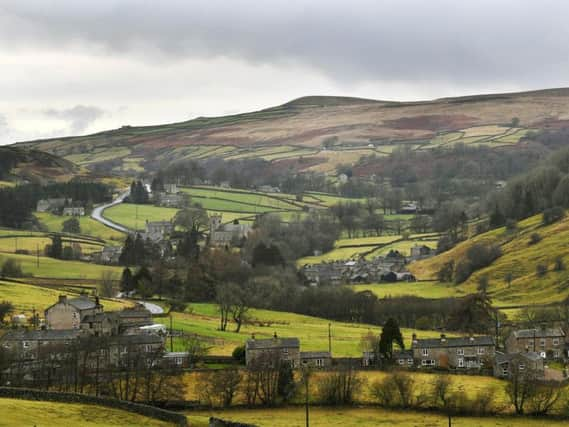Independent commission hears evidence on how North Yorkshire's rural economy can achieve its potential


The North Yorkshire Rural Commission, set up specifically to look at the challenges facing North Yorkshire’s rural communities, has heard evidence from small businesses and large organisations on the county’s jobs and economy.
The eight commissioners tasked with investigating key areas of concern in England’s largest county, 85 per cent of which is classed as rural or super sparse, heard that the big ticket items which would help unlock the rural economy included an overhaul of public transport, education linking learning to business start-up opportunities, significant investment in mobile and superfast broadband and devolution.
Advertisement
Hide AdAdvertisement
Hide AdBut alongside these, the commissioners were told, strong leadership, playing to local strengths, hyper-local problem solving, better support for micro-businesses and protecting the environment are just as important in building a sustainable future.
Hill farmer's hopes for a 'new dawn' in farming with introduction of the Agriculture BillToad patrol volunteers get ready for the first Yorkshire Toad Summit looking at ways to help halt the drastic decline in numbersThe first to give evidence was former farmer, Mark Pybus, who highlighted the issues around rural broadband. Mr Pybus started to diversify on his family farm near Catterick 15 years ago and is now the manager of Crabtree Hall Business Centre. The centre employs 32 people and offers serviced office space for small businesses alongside a café and a children’s nursery.
But Mr Pybus said broadband has been an issue from early on.
“We opened the business centre in 2007 but by 2010 the broadband we had was not fit for purpose so we started looking for an alternative. We invested in and installed our own super-fast connection in 2012/13 and Crabtree Community Broadband (CCB) followed.”
Advertisement
Hide AdAdvertisement
Hide AdMr Pybus said this provided affordable superfast connectivity to businesses and villages, predominantly west of the A1, as far as Masham and Leyburn.
“That company didn’t generate much income, but meant we were able to cover our own infrastructure costs. CCB was then sold to Air Broadband as the number of customers grew beyond what we have the technical ability and resources to support.”
He also talked about the transport infrastructure which, he said, had a big impact on recruitment as there were no local buses to bring in the young workforce or take them home.
“It is our biggest challenge. We are tackling this by improving retention rates through supporting our staff to take further qualifications while they work and earn.”
Advertisement
Hide AdAdvertisement
Hide AdCarolyn Frank, development manager for the Federation of Small Business in North Yorkshire agreed saying road rather than rail improvements would benefit their member’s businesses, helping people get to work.
“Nine out of ten of our members were largely micro businesses employing ten or less people. We need to understand the value of the smallest businesses in those rural areas, particularly in North Yorkshire, where they can be the mainstay of the local economy.
“We need a reassessment of public transport based on timetables as much as investment, 100 per cent mobile and broadband coverage.
“We also need an end to late payments affecting cash flow in small businesses and more mentoring which is often more important than a one-off grant. In addition, we must make local work the number one outcome from education, including self-employment which is so overlooked in schools and colleges.”
Advertisement
Hide AdAdvertisement
Hide AdGiving his evidence the chairman of York, North Yorkshire and East Riding LEP, David Kerfoot MBE, said: “We need to play to our strong sense of place but to give that place the power it needs to thrive.
“Devolution is critical. Currently we are treated as second or third division. The areas with devolution and the powers and budget that go with that are in the premier league and getting the funding that goes with that.”
Speaking after the meeting, chair of the commission, the Very Rev. John Dobson, said success may well depend on playing to strengths rather than relying on investment.
“We have heard a great deal about improving connectivity via better transport, technology and education but equally about the importance of the sense of place, which comes up repeatedly.
Advertisement
Hide AdAdvertisement
Hide Ad“The concept that success may well be dependent on playing to our strengths and staying true to what we have – that ‘draw of North Yorkshire’ – rather than relying on major investment to transform us into something we are not.
“There is clearly a need to consider our landscapes and natural assets as capital and there’s a key theme about protecting our natural environment given the big part it plays in that sense of place here.”